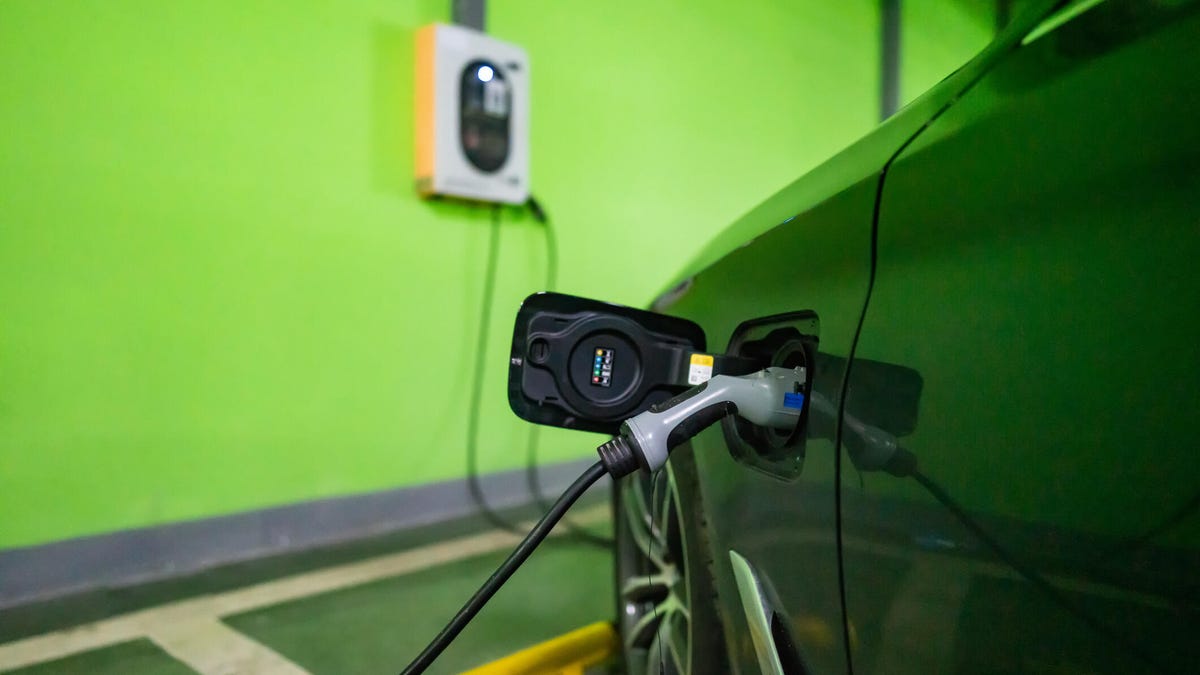New US Rules Aim for Shift From Gas Cars to EVs by 2030s: What to Know
The new standards start kicking in during the 2027 model year.

The Biden administration is moving forward on its plan to reduce greenhouse-gas emissions by encouraging the purchase of electric and hybrid vehicles.
The Biden administration hasn't been shy about its climate goals. Chief among them is increasing the number of electric and hybrid vehicles being sold by US automakers to reduce greenhouse gas emissions. To facilitate this massive change in American automaking, the White House and the Environmental Protection Agency set final emissions standards on Wednesday.
Automakers will face increasingly stringent emissions standards starting at the beginning of the 2027 model year that come to a head with the 2032 model year under the new rules.
There is no specific requirement as to how many EVs and hybrids automakers have to produce by then, but to meet the standards, it's estimated that more than 50% of all new cars sold in the US will have to be EVs or at least hybrids. The EPA outlined these standards and estimates in a 1,181-page document on its website.
EV sales hit record numbers in 2023, but seem to have slowed in 2024. In turn, automakers have dialed back their EV production goals, as EVs are reportedly starting to pile up at dealerships. Even Tesla has delayed the construction of a factory that was going to make cars for the North American market. For now, the Biden administration isn't worried about those slowdowns, but apprehension about climate change remains high: We just saw the warmest February on record, following a string of record-setting months.
A shift to EVs can help. CNET writer Tim Stevens ran the numbers and determined that even when using electricity that largely comes from coal-fired power plants, and even factoring in the creation of EV battery packs, electric vehicles have a considerably smaller impact on the environment than traditional, gasoline-powered cars.
This new standard was three years in the making, according to The New York Times. The main concern was the ability of automakers to ramp up production in the face of supply chain issues. The Biden administration has attempted to alleviate those supply chain woes but automakers said the original proposition was too much too soon.
Standards toughen in 2030
Automakers will see a modest ramp-up until 2030, when the standards call for a heavier reduction in emissions. This is to give automakers time to work on their EV and hybrid lineups in anticipation of the new emissions rules.
In a show of support, the United Auto Workers union, which includes employees from most major automakers, praised the new emissions standards and the administration's willingness to compromise.
"The EPA has made significant progress on its final greenhouse gas emissions rule for light-duty vehicles," the UAW said in a statement. "By taking seriously the concerns of workers and communities, the EPA has come a long way to create a more feasible emissions rule that protects workers building [internal combustion engine] vehicles, while providing a path forward for automakers to implement the full range of automotive technologies to reduce emissions."
Automakers are responding to the EV slowdown by making more hybrids, which have both an electric motor and a gas-powered engine, according to a report from Reuters, which said hybrid sales grew five times faster than EV sales in February. Approximately 50% of all Jeep Wrangler sales were for the hybrid model, and Ford reports that the hybrid Maverick was one of the brand's most popular vehicles right now.
According to the EPA, if every automaker achieves its new emissions standards by 2032, it'll prevent 7.2 billion tons of carbon emissions from entering the atmosphere by 2055 and prevent up to 2,500 air pollution-related deaths. Automakers have nearly a decade to figure out how to get more EVs on the road. In the interim, though, people seem to be willing to at least switch to a hybrid.